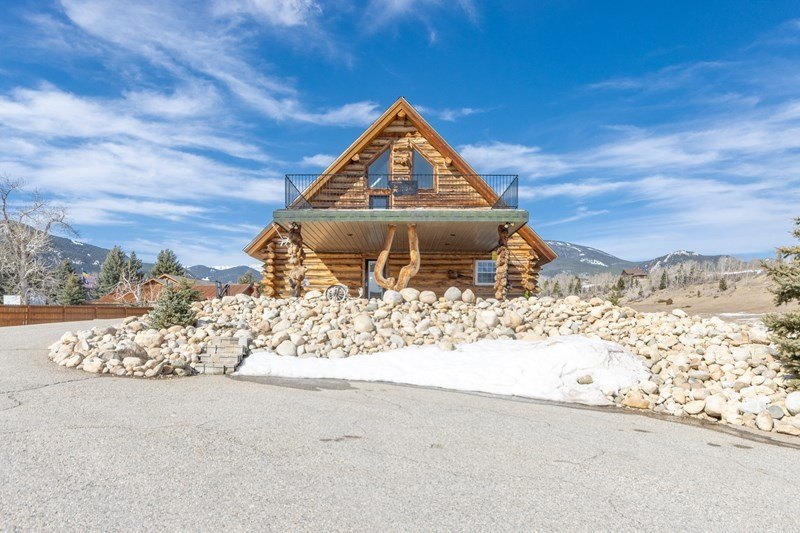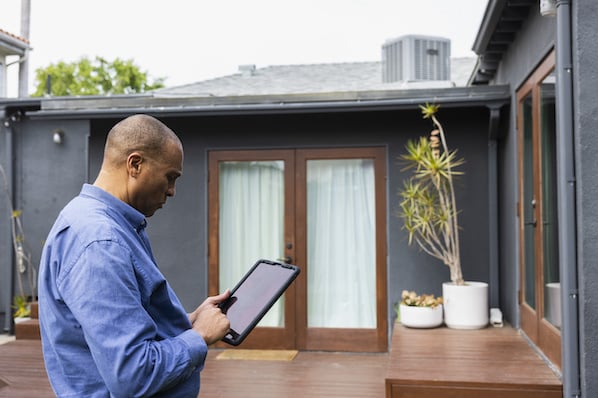
If you want to become a real estate agent, there are many books on the market that can help you level up your career and achieve success. These books can provide invaluable advice about working with clients or negotiating sales deals. From overcoming rejection to becoming a social media expert, here are some of the best real estate agent books you should consider reading.
Top Real Estate Agency: The Essential Guide for Starting and Staying Ahead of a Hot Real Estate Market, Dave Crumby. Written by industry experts such NAR Director Nobuhata and Zillow CEO Spencer Rascoff. This book is ideal for new agents as well as experienced agents looking for guidance to help them grow their business. It is an inspirational read that will help build smarter habits, authentically communicate with your clients and refocus your company on them, no matter the state or local realty market.
Sara Turney's Real Estate Humor: What I Learned From the Funny Side of Business This book is filled with witty insights that will make you laugh out loud, and it can help you remember to keep a positive attitude when dealing with tough clients and tricky negotiations.

Stephen Covey's book Psyche Cybernetics: How you can reach your goals and prepare your mind for success is a must-read. It will help anyone who dreams of achieving great things. It is a timeless book and will help you prepare for the challenges of a new real estate career.
Tom Hopkins, How to Master the Art of Selling It's still very relevant for today’s real estate market.
Bob Burg has another book called Endless Referrals. This book will show you how to turn clients into friends and clients. This book was written by a master in relationship building. You will learn how to leverage relationships to obtain more referrals.
Predictably Irrational: How We Buy and Sell Homes by Dan Ariely This book will teach you the psychology behind your client's decision-making process, and it can be very useful for your real estate career. You'll also gain valuable insight on how to deal with clients who may be nervous about the realty market.

Gary Keller, Jay Papasan, and Dave Jenks authored What to Do when Tough Times Come by Gary Keller It will help develop the mindset and skills necessary to make it through any adversity.
The Millionaire Agent in Real Estate: How to Start a Business from the Ground Up by Watters, Pounds. If you are an aspiring broker, this book is a must-read. This guide will help you grow your real estate business, and make you a top-producing agent in your local area.
FAQ
Do I need flood insurance
Flood Insurance covers flooding-related damages. Flood insurance protects your belongings and helps you to pay your mortgage. Learn more information about flood insurance.
Can I purchase a house with no down payment?
Yes! Yes. These programs include government-backed mortgages (FHA), VA loans and USDA loans. Check out our website for additional information.
How do I calculate my interest rates?
Market conditions impact the rates of interest. The average interest rates for the last week were 4.39%. Multiply the length of the loan by the interest rate to calculate the interest rate. For example: If you finance $200,000 over 20 year at 5% per annum, your interest rates are 0.05 x 20% 1% which equals ten base points.
Statistics
- Based on your credit scores and other financial details, your lender offers you a 3.5% interest rate on loan. (investopedia.com)
- It's possible to get approved for an FHA loan with a credit score as low as 580 and a down payment of 3.5% or a credit score as low as 500 and a 10% down payment.5 Specialty mortgage loans are loans that don't fit into the conventional or FHA loan categories. (investopedia.com)
- When it came to buying a home in 2015, experts predicted that mortgage rates would surpass five percent, yet interest rates remained below four percent. (fortunebuilders.com)
- This seems to be a more popular trend as the U.S. Census Bureau reports the homeownership rate was around 65% last year. (fortunebuilders.com)
- This means that all of your housing-related expenses each month do not exceed 43% of your monthly income. (fortunebuilders.com)
External Links
How To
How to Manage a Property Rental
Although renting your home is a great way of making extra money, there are many things you should consider before you make a decision. We'll help you understand what to look for when renting out your home.
Here are some things you should know if you're thinking of renting your house.
-
What should I consider first? Take a look at your financial situation before you decide whether you want to rent your house. If you have outstanding debts like credit card bills or mortgage payment, you may find it difficult to pay someone else to stay in your home while that you're gone. It is also important to review your budget. If you don't have enough money for your monthly expenses (rental, utilities, and insurance), it may be worth looking into your options. It might not be worth the effort.
-
How much does it cost for me to rent my house? There are many factors that influence the price you might charge for renting out your home. These include factors such as location, size, condition, and season. Keep in mind that prices will vary depending upon where you live. So don't expect to find the same price everywhere. Rightmove has found that the average rent price for a London one-bedroom apartment is PS1,400 per mo. This means that your home would be worth around PS2,800 per annum if it was rented out completely. It's not bad but if your property is only let out part-time, it could be significantly lower.
-
Is it worth the risk? It's always risky to try something new. But if it gives you extra income, why not? Make sure that you fully understand the terms of any contract before you sign it. You will need to pay maintenance costs, make repairs, and maintain the home. Renting your house is not just about spending more time with your family. Before signing up, be sure to carefully consider these factors.
-
Are there any benefits? There are benefits to renting your home. Renting your home is a great way to get out of the grind and enjoy some peace from your day. Whatever you choose, it's likely to be better than working every day. You could make renting a part-time job if you plan ahead.
-
How do you find tenants? Once you've decided that you want to rent out, you'll need to advertise your property properly. Start by listing online using websites like Zoopla and Rightmove. Once potential tenants reach out to you, schedule an interview. This will allow you to assess their suitability, and make sure they are financially sound enough to move into your house.
-
How can I make sure that I'm protected? If you don't want to leave your home empty, make sure that you have insurance against fire, theft and damage. Your landlord will require you to insure your house. You can also do this directly with an insurance company. Your landlord will likely require you to add them on as additional insured. This is to ensure that your property is covered for any damages you cause. However, this doesn't apply if you're living abroad or if your landlord isn't registered with UK insurers. In these cases, you'll need an international insurer to register.
-
You might feel like you can't afford to spend all day looking for tenants, especially if you work outside the home. However, it is important that you advertise your property in the best way possible. It is important to create a professional website and place ads online. You'll also need to prepare a thorough application form and provide references. While some people prefer to handle everything themselves, others hire agents who can take care of most of the legwork. In either case, be prepared to answer any questions that may arise during interviews.
-
What happens once I find my tenant If you have a contract in place, you must inform your tenant of any changes. If you don't have a lease, you can negotiate length of stay, deposit, or other details. It's important to remember that while you may get paid once the tenancy is complete, you still need to pay for things like utilities, so don't forget to factor this into your budget.
-
How do you collect the rent? When the time comes to collect the rent, you'll need to check whether your tenant has paid up. If your tenant has not paid, you will need to remind them. You can subtract any outstanding rent payments before sending them a final check. If you're struggling to get hold of your tenant, you can always call the police. They won't normally evict someone unless there's been a breach of contract, but they can issue a warrant if necessary.
-
How can I avoid potential problems? Although renting your home is a lucrative venture, it is also important to be safe. Make sure you have carbon monoxide detectors installed and security cameras installed. Make sure your neighbors have given you permission to leave your property unlocked overnight and that you have enough insurance. You should never allow strangers into your home, no matter how they claim to be moving in.